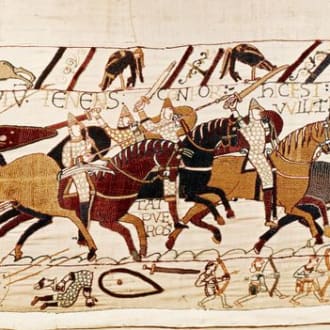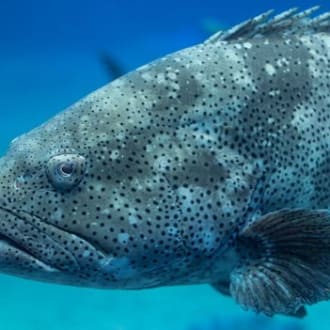The Best of BBC Future
20+ most popular BBC Future articles, as voted by our community.
Trending
These are currently making the rounds on Refind.
'A wonderful opportunity': The adventure of raising bilingual children
How do you help children become fluent in two or more languages, even if you don't speak other languages yourself?
BBC Future on Aviation
Is seaweed the future of flying?
Aircraft currently leave a major footprint on the world's climate, so can the aviation industry hope to reach net zero by the middle of the century?
The giant hangar poised for an aviation revolution
Airships could offer a much cleaner and quieter alternative for some aspects of the aviation market. In a former airship factory, a new generation are taking shape.
BBC Future on Climate Crisis
How cities are going carbon neutral
Home to the majority of the global human population, urban areas make an outsized contribution to carbon emissions. What can they do to reach net zero by the middle of the century?
«Another major contributor to carbon dioxide (CO2) emissions in cities is the energy required to build, maintain and run buildings. In 2015, buildings were responsible for 38% of global energy-related CO2 emissions – with the majority produced after construction finishes.»
From London to New York: Can quitting cars be popular?
Cities around the world reveal surprising truths about getting the public on board with cutting car-use.
«Barcelona introduced free travel for three years for those who got rid of polluting cars,»
BBC Future on Environment
Do single-use plastic bans work?
The problems caused by plastic waste are rapidly increasing around the globe, but it still serves a useful purpose in food packaging. Can plastic still be a green option?
«brands have transitioned away from refillables to single-use packaging faster in the global North than in the South; it simply made more economic sense,»
The animals changed by proximity to humans
It's not just domestication that has changed animals – simply sharing their environment with humans has radically altered the behaviour of some species.
«It's not just domestication that has changed animals – simply sharing their environment with humans has radically altered the behaviour of some species.»
BBC Future on Health
How our eyes can change colour throughout our lives
Through apparently spontaneous change or through mishap or illness, our eyes can change colour in surprising ways.
The curious ways your skin shapes your health
Weathered or unhealthy skin is emerging as a major risk factor for almost every single age-related disease, from Parkinson's to type 2 diabetes.
BBC Future on History
Do we need a better understanding of 'progress'?
A growing and influential intellectual movement aims to understand why human progress happens – and how to speed it up. Garrison Lovely investigates.
How ancient civilisations dealt with trauma
As the conflicts in Gaza and Ukraine continue, there’s deepening concern for the trauma that may come later. But war has been around for millennia. How did our ancestors cope?
BBC Future on Kindness
What stops people from being kinder?
The Kindness Test is the world's largest survey on what it means to be kind. It's shed light on the barriers that stop us being kind – but also that empathy truly is international.
What we do and don't know about kindness
In recent years, psychologists have gained a deeper understanding of human kindness and its benefits, but as Claudia Hammond writes, there's still so much to explore.
BBC Future on Military
Why the US military is listening to shrimp
Military sonar can have a serious effect on some ocean animals. Could natural noises produced by sealife be used to locate undersea threats?
The drug pilots take to stay awake
Pilot fatigue is in the spotlight this week, with the news that one Indonesian flight had two sleeping pilots at its helm. But the military have a surprising solution.
BBC Future on Nature
Is air pollution causing us to lose our sense of smell?
Our sense of smell is one of our richest and wide-ranging windows into the world around us, but a threat in the air we breathe may be eroding our olfactory powers.
Why don't humans have fur?
Most mammals, including our closest living relatives, have fur. So why did we lose ours?
BBC Future on Solar Energy
How Morocco went big on solar energy
Morocco has become famous for its vast, world-leading solar arrays. But these mega-projects are just the start of the action on climate change that Morocco could be capable of.
The floating solar panels that track the Sun
Many countries are looking to floating solar power to save valuable space. The Netherlands is taking this one step further, with water-based arrays that follow the Sun.
Popular
These are some all-time favorites with Refind users.
How colours affect the way you think
Our world is awash with a rainbow of colours, but certain shades can have a surprising impact on our ability to concentrate, our mood and even our taste.
«And if you want a child to concentrate, you might consider painting a classroom in a vivid palette and so bolster their reading scores.»
How our brains cope with speaking more than one language
Speaking a second or even a third language can bring obvious advantages, but occasionally the words, grammar and even accents can get mixed up.
«our languages aren't just static throughout our lives but shifting, actively competing and interfering with each other.»
Why some people can't tell left from right
It can seem like an almost childish mistake, but a surprising number of adults confuse left from right and scientists are only just starting to understand why.
Can you delay ageing by refusing to act your age?
When old age starts depend on where you live in the world. But it may also partly depend on how you view ageing. Can you delay it with a positive attitude?
The race to reclaim the dark
Some 200 places around the world have now achieved Dark Sky status. Frankie Adkins explores the benefits nights with out light pollution can bring.
«LED lighting – despite its reputation for energy efficiency – often contains high proportions of blue light in its spectrum, which creates a harsh glar»
What is Refind?
Every day Refind picks the most relevant links from around the web for you. is one of more than 10k sources we monitor.
How does Refind curate?
It’s a mix of human and algorithmic curation, following a number of steps:
- We monitor 10k+ sources and 1k+ thought leaders on hundreds of topics—publications, blogs, news sites, newsletters, Substack, Medium, Twitter, etc.
- In addition, our users save links from around the web using our Save buttons and our extensions.
- Our algorithm processes 100k+ new links every day and uses external signals to find the most relevant ones, focusing on timeless pieces.
- Our community of active users gets the most relevant links every day, tailored to their interests. They provide feedback via implicit and explicit signals: open, read, listen, share, mark as read, read later, «More/less like this», etc.
- Our algorithm uses these internal signals to refine the selection.
- In addition, we have expert curators who manually curate niche topics.
The result: lists of the best and most useful articles on hundreds of topics.
How does Refind detect «timeless» pieces?
We focus on pieces with long shelf-lives—not news. We determine «timelessness» via a number of metrics, for example, the consumption pattern of links over time.
How many sources does Refind monitor?
We monitor 10k+ content sources on hundreds of topics—publications, blogs, news sites, newsletters, Substack, Medium, Twitter, etc.
Can I submit a link?
Indirectly, by using Refind and saving links from outside (e.g., via our extensions).
How can I report a problem?
When you’re logged-in, you can flag any link via the «More» (...) menu. You can also report problems via email to hello@refind.com
Who uses Refind?
450k+ smart people start their day with Refind. To learn something new. To get inspired. To move forward. Our apps have a 4.9/5 rating.
Is Refind free?
Yes, it’s free!
How can I sign up?
Head over to our homepage and sign up by email or with your Twitter or Google account.























